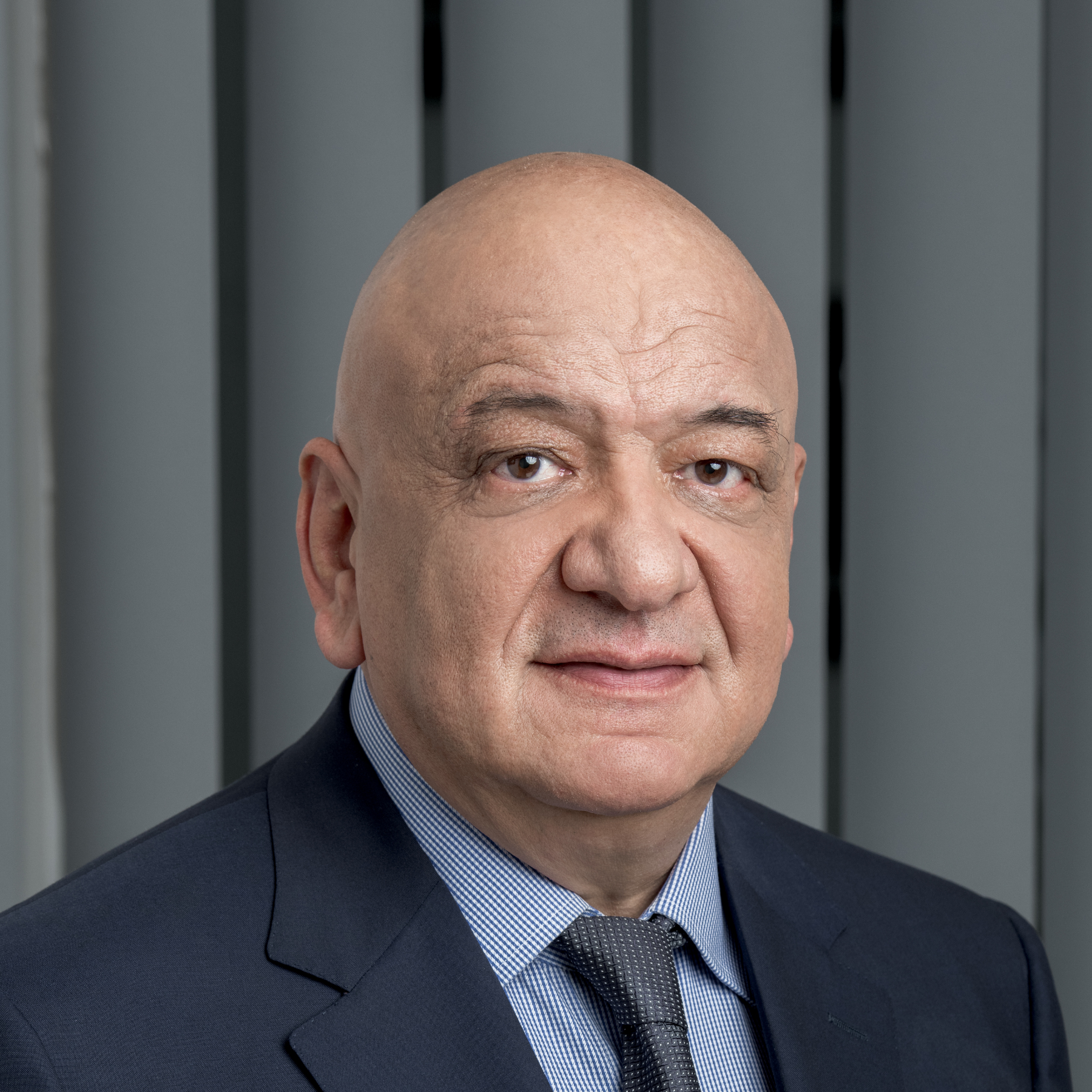From model change to these days – interview with the President of Corvinus
Corvinus University is at the forefront of the model shift, as it is the first of the new foundation-maintained universities. Anthony Radev, President of Corvinus University of Budapest, told us how this kind of change has affected the university and what their plans are for the future.

Even before the model change, Corvinus was a strong institution, with an excellent track record in economics. Why was the model change necessary and what processes justify it?
It is true that Corvinus used to be the country’s first university in the fields of economics and business studies, and that for decades a significant part of the future Hungarian economic and political elite has been graduating from this university, but we did not want to stop there. With model change, the primary goal was a change of scale. A university that is outstanding in Hungarian terms has all the potential to be successful on an international scale. Our strategic goal is to make Corvinus the leading institution in Central Europe in international higher education rankings in the fields of economics, business and social sciences by 2030, i.e. to make Corvinus the responsible economic and social elite of the region. But to achieve this goal, more flexible conditions were needed. The foundation model has freed us from most of the bureaucratic constraints and provides the possibility of long-term and predictable planning, as well as a more market-oriented approach. The first of July marks the second year since Corvinus became foundation-maintained, and the results are already visible: our decision-making mechanisms are faster and more efficient, and projects are completed in a shorter time. We can ensure that our teachers and staff in service areas are paid salaries that are consistently close to market levels.
What specific programme, change, improvement or result has been achieved since then?
A lot. Two years ago, we began our work by working with University staff to define the goals we wanted to achieve and the development plans that would lead to them. Project teams made up of university managers, academics, researchers and students have been set up to develop the different areas, and in some areas former students and employer representatives have also been involved. Just to mention the most important results achieved so far: Corvinus staff have seen an average 38% increase in their overall salaries over two years, and we have introduced the academic career model and a training and performance development scheme to encourage staff development. An important feature of the new operation is that the average scholarship per scholarship student is more than three times the amount of the state scholarship, with the support of the Foundation managing the University. We have introduced a student-centred approach and services at the University.

We are also well on track with our internationalisation efforts, having gained AMBA accreditation last summer alongside our existing EFMD-EQUIS qualification, leaving us just one qualification away from becoming a ‘triple crown’ institution with accreditation focused on the three most prestigious international business universities. The optimistic scenario is that in 2022 Corvinus could also achieve AACSB accreditation, making it one of the world’s top 100 business universities.
Change has certainly been accompanied by organisational change and development. How could these be described and presented to the readers?
As an initial step, we abolished the faculty structure and created a single university institute system. This allows the organisation to operate more efficiently and faster and to respond more quickly to market needs. When we started the strategy in the summer of 2019, we involved more than 100 colleagues in the process, and since then that number has grown, with around 100 people now working on the renewal of a single degree course alone. Dialogue and the involvement of the whole University community in the process is key when transforming an organisation of this size, as conflicts of interest are inevitable with changes of this magnitude. I attribute this to the fact that there were no major conflicts on the trade union or academic side during the transition.
What can students already see from all this?
Students ae the biggest winners in the short and long term of the renewal of Corvinus. We believe it is important to have a student-centred approach, as the most important task of a university is to provide students with a high quality education. I hope that students in the new courses are already feeling the changes. But in addition to learning, we also want students enrolled at the renewed Corvinus University to have a great experience. That is why we are reforming our student services with tools such as the introduction of onboarding days for freshers or an online student administration system. Last year, we opened a modern, open-plan, coworking student office for Corvinus students and launched the self-developed MyCorvinus mobile application.
What do you offer new entrants, first years? Is it better to attend Corvinus now?
The new student services mentioned above will also make life easier for upper-year students, but it is the students enrolled in the renewed courses who will benefit most from the model change, as they will enter the labour market with much more marketable skills, and employers will reward this with
higher salaries. As part of the renewal process, we asked employers and graduating students what skills they most lacked when they left university and entered the labour market. The main problem we saw was that there is a big gap between theory and practice in domestic education, which means that recent graduates do not have the skills needed for a position in an international company, for example. That is why in our renewed courses, we’ve incorporated real-life business projects into the curriculum, creating project-based, hands-on, small-group intensive classes.

You also stressed the value of the degree in an earlier interview. What progress has been made, how can this be measured and what KPIs are used?
I can give you concrete figures. A Corvinus student with a degree in economics can now expect to earn 340 million forints net over a full career, 110 million forints more than the national average for graduates in the same field. In other words, the lifetime value of a Corvinus degree is HUF 340 million. This estimate, calculated by our market researchers, is based on data from the Department for Education’s Graduate Tracking System database. Even a degree from Corvinus now is worth much more than it was 5-10 years ago, but as we become more visible internationally, the value of a degree from Corvinus will continue to grow.
How do you personally, as President, assess the first two years?
In the first year, we managed to lay the foundations, agree on common goals and start developing. By the second year, the results are more visible and the initial uncertainty surrounding the maintenance by the Foundation is gone. This is evidenced by the fact that, based on preliminary admission application data, 30 percent more students applied to Corvinus in the first place this year than last year. Most of the University is also starting to see the changes in a positive light. Feedback from many colleagues who have been teaching here for decades is that we have achieved more in these two short years than we have in all the previous attempts at reform in previous decades.
What do you expect from the new Rector?
The Board of Trustees of the Maecenas Universitatis Corvini Foundation, which maintains Corvinus, unanimously voted in favour of the appointment of Előd Takáts as Rector, after the University Senate had given its opinion and support to the application. Afterwards, the Ministry of Innovation and Technology submitted the nomination of the rector-designate Előd Takáts to President János Áder. With the appointment of the President of the Republic, the new Rector has been finalised. I have high hopes for the new Rector, especially in terms of advancing our internationalisation efforts and changing the research culture at the university. Előd Takáts has significant international labour market and academic research experience, from which Corvinus can benefit in the future.
What is the main idea and motto of the university and what does it mean to you?
The values of Corvinus University are based on four principles, and it is along the lines of these values, which I share with the University community, that I work every day: we believe in the power of community and collaboration, autonomy and responsibility, and excellence and professionalism. Furthermore, at the University we follow the meritocratic principle that only performance counts; in selection, promotion and remuneration.
Long-term strategy: where do you want to be in 5 to 10 years?
Our strategic goal is clear and stable: the vision of the renewed Corvinus University is to become the best university in Central Europe in economics and social sciences by 2030. And our mission is that in the 21st century Corvinus University of Budapest will educate the responsible economic and social elite of Hungary and Central Europe.
Source: unilife.hu